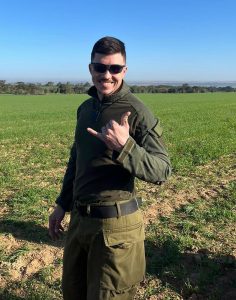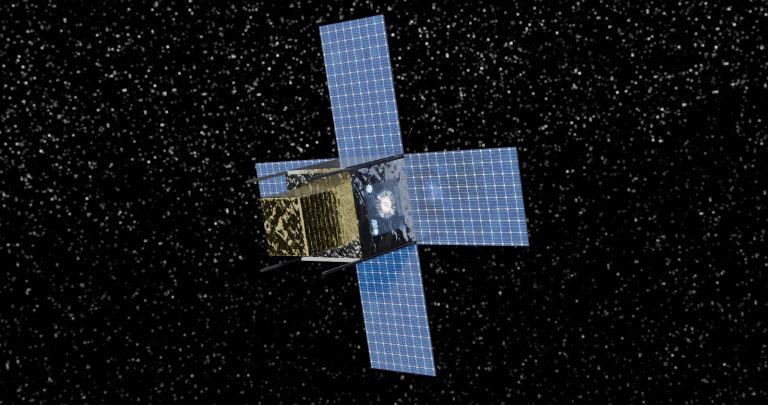The late Krukhamlov-Wexler, was supposed to start his studies this year at the Faculty of Aeronautics and Space Engineering and who was killed in battle in the Gaza Strip

As part of a collaboration between the Technion and the Aerospace Industry, a student project for the design of the NOVA-SAT satellite will be dedicated to the memory of the late Capt. Denis Krukhamlov-Wexler, who was supposed to begin his studies at the Faculty of Aeronautics and Space Engineering this year and who was killed in battle in the Gaza Strip.
The project, shared by the Aerospace Industry and the Faculty of Aeronautics and Space Engineering at the Technion, is a unique project led by Dr. Hillel Rubinstein from the Aerospace Industry and Dr. Oded Golan, the academic responsible for student projects in the faculty.
The development of the scientific satellite, one of whose tasks is communication, is the final project of a group of students in the faculty, and it is designed to carry a detector for measuring spatial gamma radiation developed in the Faculty of Physics at the Technion. The name given to the satellite, NOVA-SAT, combines the commemoration of the events of October 7 at the Nova Party with the main scientific mission of the satellite. As mentioned, the project is dedicated to commemorating the memory of the late Captain Krokhmalov-Wexler.

The satellite is designed to perform measurements using the GALI detector developed at the Technion's Faculty of Physics. The detector is designed to detect bursts of gamma radiation - a product of exploding stars at the end of their lives, supernovae and mergers of pairs of neutron stars. Since these astronomical events are difficult to detect, an extensive effort has been made worldwide to develop innovative detectors that will identify them and their location. The detector developed at the Faculty of Physics, GALI, makes it possible to identify the direction of the eruption with a precision that is not currently characteristic of small systems like it, but only of giant satellites. The locations it will provide will allow astronomers all over the world to point telescopes at the event, study the eruption and tie it to other events such as gravitational waves. The airborne model, which will be carried by NOVA-SAT, was built by PhD student Julia Saleh-Natour.
The late Capt. Denis Krokhmalov-Wexler, who fell in battle in the Gaza Strip on January 8, 2024, was a respected athlete who immigrated to Israel at the age of 17, lived in Be'er Sheva and served as an officer in the elite Yalam unit of the Combat Engineering Corps. Despite his injury during triathlon training after his military service, the late Denis insisted on continuing to serve in the reserves and at the same time registered, was accepted and prepared to fulfill his dream of studying aeronautics and space engineering at the Technion.
The NOVA-SAT project expresses the important connection between industry, education and national memory.
